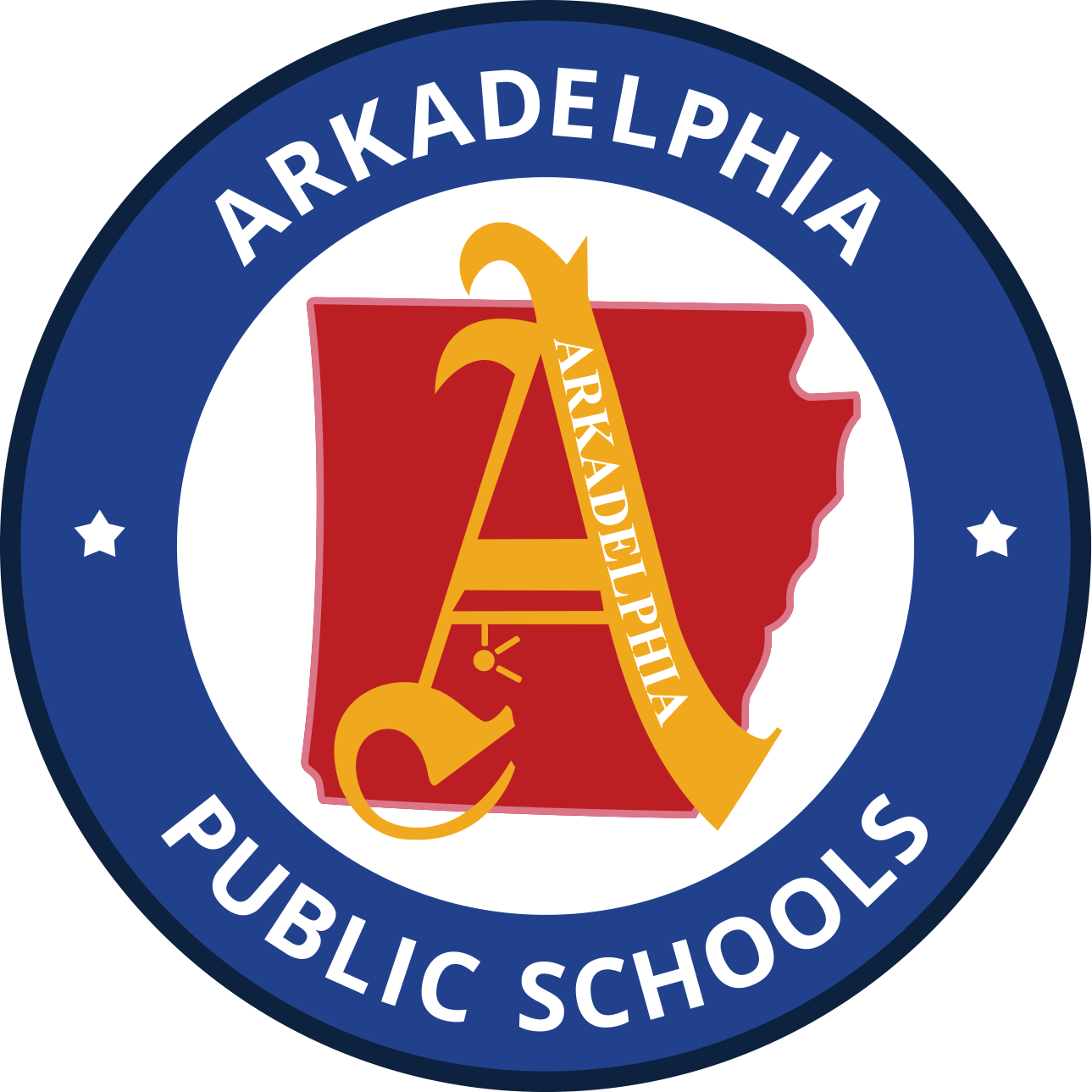APSD Wellness Committee

William Jeremy Bell
Director of Federal Programs
700 Clinton Street, Dawson Building #3
P. O. Box 10
870-246-5563
william.bell@arkadelphiaschools.org
Welcome and Overview
Welcome to the Wellness Committee's section of the website.
The Arkadelphia Public School District has a district Wellness Committee and a campus Wellness Committee at each site.
Overlapping between various agencies and initiatives, school wellness initiatives are intended to address the needs of the whole child. Consequently, local personnel receive technical assistance from ADE, ADH, and other partners. These combined efforts help to address the needs of the whole child in both fiscal and programmatic matters and to maintain communication efforts with stakeholders as well.
We invite you to visit the district's Child Nutrition page here as well.
State School Health and Wellness
Act 1220 of 2003 created the role of the Act 1220 Coordinator/State School Health and Wellness Coordinator. The Act 1220 Coordinator (State School Health and Wellness Coordinator) works with the 1,102 schools in the 262 districts to ensure the requirements of Act 1220 of 2003 and related state and federal school health mandates are met.
The main goal is to lower obesity rates by supporting best practices in food service, nutrition, physical, and health education.
The State School Health and Wellness Coordinator work with school and district wellness committees to help ensure their annual School Health Index (SHI) and School Health and Wellness Improvement Plan are accurately completed and submitted by the October 1st deadline.
Also, the Coordinator helps schools in reviewing and updating their School Wellness Policy, provides technical assistance, trainings related to school wellness, and regular updates on school wellness data and reporting.
The Arkansas School Health Services Initiative is an interagency collaboration between the Division of Elementary & Secondary Education (DESE) and the Arkansas Department of Health (ADH).
This state-level infrastructure provides support to Arkansas schools in the implementation of health and wellness activities that create a safe and healthy school environment that supports learning.
MISSION: To improve children’s health and academic success by advancing school health services through leadership and collaboration.
VISION: To ensure all Arkansas children are safe, healthy and ready to learn.
PURPOSE: To contribute to the goals of the education system by providing assistance to schools to meet the health and safety needs of students.
The School Health Services Office focuses on providing professional development, technical assistance, training, and resources to aid schools in meeting school health legislative mandates and implementing healthy school practices in areas including:
health education
physical education
conducting the School Health Index (SHI) Assessment
development and implementation of district wellness policies and committees
developing a school improvement wellness strategy
school-based health care services
mental health services
District and Campus School Health Coordinators
To assist the SNPAAC in ensuring that the district fulfills the requirements of this policy, a district-level School Health Coordinator (designated district official) shall be appointed.
The Director of Federal Programs serves as the district-level designee. Currently, that is William Jeremy Bell.
Along with some district and community stakeholders, each campus will designate up to two individuals to serve on the district's committee.
Current committee members, agendas, minutes, etc. are posted online. Feel free to explore these here.
District Wellness Committees
To enhance the district’s efforts to improve the health of our students, a School Nutrition and Physical Activity Advisory Committee (SNPAAC) shall be formed. It shall be structured in a way to ensure age-appropriate recommendations are made that correlate to the district’s grade configurations. The district shall designate this group as the APSD District Wellness Committee.
Each campus will have its designated participants on the APSD District Wellness Committee in order to address the items that correlate to the grade configurations of that location. The work at each campus will contribute to the work of the district SNPAAC requirements.
Current committee members, agendas, minutes, etc. are posted online. Feel free to explore these here.
The SNPAAC will meet at least quarterly throughout the year.
The SNPAAC shall have the powers and responsibilities delegated to it by statute and rule and are incorporated into this policy by reference. The overarching goal of the committee shall be to promote student wellness by monitoring how well the district is doing at implementing this policy.
Each campus will use modules 1, 2, 3, 4, 10 and 11 of the Centers For Disease Control (CDC) School Health Index (SHI) as a basis for annually assessing each school’s progress toward meeting the requirements of this policy. The results of the annual assessment shall be included in each school’s plan, provided to each school’s principal, and reported to the board. Goals and objectives for nutrition and physical activity shall also be included in the plan.
The SNPAAC shall be made up of Individuals from the following groups to the extent interested persons from each group desire to be included in the development, implementation, and periodic review of the District's wellness policy:
Members of the District’s Board of Directors;
School administrators;
School nutrition personnel;
Teacher organizations;
Teachers of physical education;
Parents;
Students;
Professional groups (such as nurses);
School health professionals (such as school nurses, school counselors, and social workers); and
Community members.
The SNPAAC shall provide written recommendations to the district’s Child Nutrition Director concerning menus and other foods sold in the school cafeteria. Such recommendations shall be based, at least in part, on the information the committee receives from the district on the requirements and standards of the National School Lunch Program and from menus for the National School Lunch Program and other food sold in the school cafeteria on a quarterly basis.
District Quarterly Meeting Dates
Although subject to change, the planned quarterly committee meetings for 2024-2025 are as follows:
Q1: October 21, 2025 from 2:00 PM to 3:00
Q2: TBA
Q3: TBA
Q4: TBA
Each meeting will be hosted at the APSD Central Office at 700 Clinton Street with a Google Meet option.
Documentation
This shared folder contains documentation from current and prior years. These items include copies of committee member lists, wellness plans, agendas, minutes, etc. Feel free to explore these here.
To request additional information, please contact the office by phone during school hours:
District Office at 870-246-5563
Peake Elementary School at 870-246-2361
Goza Middle School at 870-246-4291
Arkadelphia High School at 870-246-7373
Menu Review
Menus are available in the district's app.
The APSD District Wellness Committee reviews the menus quarterly to provide feedback on them.
Please email comments, questions, etc. regarding menus to Jordan Holland (jordan.holland@arkadelphiaschools.org) and please CC W. J. Bell (william.bell@arkadelphiaschools.org).
We invite you to visit the APSD Child Nutrition page here as well.
Additional Resources
The following resources are available to the district committee's members, to the campus committees' members, and to other stakeholders.
The compiled links to resources below are neither operated nor endorsed by APSD.
Wellness Committee Resources
Arkansas Coalition for Obesity Prevention: Early Childhood and Schools Team
Local School Wellness Policy Implementation Under the HHFK Act of 2010:Summary of Final Rule
Wellness is Worth It! (Wellness Committee Guide)
Assessment Tools for Wellness Committee and Campus Work
Family and Stakeholder Resources
School Nutrition Resources
Additional Data Sources
Associated Legislation
Feedback
Please complete any surveys for any campus and for the district
APSD Federal Programs Engagement Survey (feel free to provide feedback for any of the pertinent sections)
Please consider volunteering by campus
Each campus trains its volunteers for the specific roles and/or tasks
Please let us know how we can collaborate with you more effectively

